第73章 MONEY OR SIMPLE CIRCULATION(54)
To put it in other words,money circulates in different countries only because it circulates as coin in each country.Money is simply specie,and the amount of gold present in a country must enter the sphere of circulation;as a token representing itself it can thus rise above or fall below its value.By the circuitous route of these international intricacies we have managed to return to the simple thesis which forms the point of departure.
A few examples will show how arbitrarily actual phenomena are arranged by Ricardo to suit his abstract theory.He asserts,for instance,that in periods of crop failure,which occurred frequently in England between 1800and 1820,gold is exported,not because corn is needed and gold constitutes money,i.e.,it is always an efficacious means of purchase and means of payment on the world market,but because the value of gold has fallen in relation to other commodities and hence the currency of the country suffering from crop failure is depreciated in relation to the other national currencies.
That is to say,because the bad harvest reduces the volume of commodities in circulation,the existing quantity of money in circulation exceeds its normal level and all commodity-prices consequently rise.[18]As opposed to this paradoxical explanation,statistics show that in the case of crop failures in England from 1793up to the present,the existing amount of means of circulation was not excessive but on the contrary it was insufficient,and therefore more money than previously circulated and was bound to circulate.[19]
At the time of Napoleon's Continental System and the English Blockade Decrees,Ricardo likewise asserted that the British exported gold instead of commodities to the Continent,because their money was depreciated in relation to that of continental countries,the prices of their commodities were therefore higher and the export of gold rather than commodities was thus a more profitable commercial transaction.According to him commodities were dear and money cheap on the English market,whereas on the Continent commodities were cheap and money dear.
An English writer states however:"The fact ...I mean the ruinously low prices of our manufactures and of,our colonial productions under the operation,against England,of the Continental System'during the last six years of the war....The prices of sugar and coffee,for instance,on the Continent,computed in gold,were four or five times higher than their prices in England,computed in bank-notes.I am speaking ...of the times in which the French chemists discovered sugar in beet-root,and a substitute for coffee in chicory;and when the English grazier tried experiments upon fattening oxen with treacle and molasses --of the times when we took possession of the island of Heligoland,in order to form there a depot of goods to facilitate,if possible,the smuggling of them into the North of Europe;and when the lighter deions of British manufactures found their way into Germany through Turkey....Almost all the merchandise of the world accumulated in our warehouses,where they became impounded,except when some small quantity was released by a French Licence,for which the merchants at Hamburgh or Amsterdam had,perhaps,given Napoleon such a sum as forty or fifty thousand pounds.They must have been strange merchants ...to have paid so large a sum for liberty to carry a cargo of goods from a dear market to a cheap one.What was the ostensible alternative the merchant had?...Either to buy coffee at 6d.a pound in bank-notes,and send it to a place where it would instantly sell at s.or 4s.a pound in gold,or to buy gold with banknotes at £5an ounce,and send it to a place where it would be received at £317s.101/2d.an ounce....
It is too absurd,of course,to say ...that the gold was remitted instead of the coffee,as a preferable mercantile operation....There was not a country in the world in which so large a quantity of desirable goods could be obtained,in return for an ounce of gold,as in England ....Bonaparte ...was constantly examining the English Price Current ....
So long as he saw that gold was dear and coffee was cheap in England,he was satisfied that his 'Continental System'worked well."[20]
In 1810--just at the time when Ricardo first advanced his currency theory,and the Bullion Committee embodied it in its parliamentary report --the prices of all British commodities slumped ruinously in comparison with their level in 1808and 1809,whereas the relative value of gold rose.
Agricultural products were an exception because their import from abroad was impeded and the amount available within the country was greatly reduced by bad harvests.So completely did Ricardo misunderstand the function that precious metals perform as international means of payment that in his evidence before the Committee of the House of Lords (1819)he could declare:
"that drains for exportation would cease altogether so soon as cash payments should be resumed,and the currency restored to its metallic level".
His death occurred in time before the onset of the crisis of 1825demonstrated the falsehood of his forecast.The time within which Ricardo's literary activity falls was in general hardly favourable to the study of the function which precious metals perform as world money.Before the imposition of the Continental System Britain had almost continuously a favourable trade balance,and while the System was in force her transactions with the European continent were too insignificant to affect the English rate of exchange.
The transfer of money had a predominantly political character,and Ricardo seems to have completely misunderstood the role which subsidies played in British gold export.